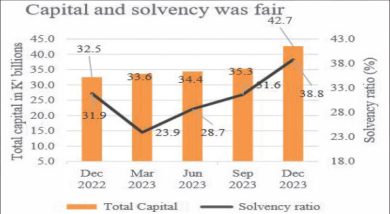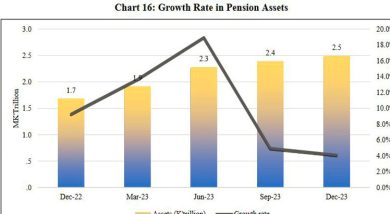AHL to champion transparency, fairness in tobacco marketing
As the 2014 tobacco marketing season draws to an end, one major highlight during this year’s season was the continued debate on the implementation of the Integrated Production System (IPS) or contract farming and auction marketing which have been running parallel in the past two (2013 and 2014) seasons. I (DM) caught up with Auction Holdings Limited (AHL) group chief executive officer Evans Matabwa (EM) to provide the review of the tobacco marketing since 2013.
————————————————————-

DM: Welcome sir! And briefly give us a breakdown of the tobacco market structure at the moment
EM: Thank you! First of all I would like to highlight the fact that apart from auction sales, there are two types of contracts on our market. We have the farmers who are supported by the merchants through inputs, bank guarantees, technical support etc. These fall in the category which is rightly called IPS. Then we have another group of farmers who have grown the tobacco using their own means and resources from field to market, but end up selling to specific merchant companies, through contracts signed at the time of marketing.
Unfortunately, when it comes to progress reporting, these two contract categories are grouped as one, whether deliberately or otherwise, to represent the IPS picture on the market. Statistically, this has resulted into an enormous distortion or gross representation of facts.
Understandably, as a result of this kind of misinformation, those entrusted with the responsibility of making policies have probably ratified wrong proposals.
In our view, as market operators, the reality is that there are a significant number of farmers out there who continue to produce tobacco unsupported. Their voices seem to be gradually suppressed while their value in economic terms remains undoubtedly impacting.
DM: During the course of the season, at some point you challenged other industry players on the prevailing market arrangement. What is really your problem with the 80/20 percent proportion in tobacco marketing?
EM: This has been one of the most challenging areas in our business in the past two seasons of 2013 and 2014. For the first time, we were given instructions that sales should run on a proportion of eighty percent IPS and twenty percent auction sales.
Our primary challenge at this point was the basis for which this proportion was arrived at, especially given the fact that production was not regulated in such a pattern. Again, as market operators, we were further pressured to reduce the number of selling days for auction tobacco to two days per week, while those on contract were allowed to sell for the full week. These decisions were handed without due regard to the production equation on the ground.
DM: So what would you say are the consequences of such a decision on the ground?
EM: So many consequences on the ground Dumbani. First, farmers who were not under any of the two forms of contract had problems to sell their tobacco. They were many but did not have enough days to access the market. As a result, this forced them to seek contracts with merchants, just to dispose of their tobacco quickly, while others indeed opted to cross the borders for illegal sales.
Again, as there was too much contracted tobacco for individual merchants on a daily basis, serious logistical challenges arose where it was difficult for merchants to timely clear off their purchased tobacco from the markets to their factories. Competition on one hand was affected because of the artificially created focus on the contract.
In addition, the delays on auction sales also affected those farmers who had secured loans from banks on their own, as this disrupted loan repayment programmes.
DM: Having said all this, now what is the AHL’s position or stand on continued implementation of both contract and auction marketing systems?
EM: Our position has been that we welcome the idea to have two marketing namely; auction and contract sales. However, going forward, it would be important for stakeholders to be more transparent in their marketing activities because we believe that this is the only way credible and correct informed decisions can be originated. If farmers are provided with full and correct information, they are capable of making the right decisions. So too with those in high authorities. If they are furnished with correct information, they will be able to prescribe the right policies for this country.
DM: Tell me how all these could impact on the tobacco industry business environment, going forward?
EM: Simple, this is what would happen. A new company entering the buying business will procure its leaf requirements from the auction market, since it does not have a ready farmer base. It needs to establish the trust, confidence and understanding of the industry dynamics before it can start attracting farmers by way of contracts. The farmers would want to know this investor well, before they can be engaged.
Therefore, by narrowing the auctioning window or completely removing the auction system, we are raising the barriers to entry into the tobacco buying business, while on the other hand we are quick to mourn about reduced numbers of merchants on the country’s tobacco market.
Turning to smaller merchant companies, their capacity to support contracts as in provision of inputs, bank guarantees, technical support, is limited due to financial challenges. By keeping auction sale highly restricted, these young companies are hugely and unfairly disadvantaged because auction gives smaller firms the much-needed tobacco for their business.
By the way, we are also making sure that there are cigarette manufacturers out there who do not make a case out of which marketing system supplied them with tobacco. They simply need the leaf to make cigarettes and keep their businesses running. That segment of the market must surely not be ignored.
DM: And there are serious threats out there on tobacco such as the Framework Convention on Tobacco Control and other pressures. What are you doing as AHL in mitigating any possible impact on your tobacco business?
EM: Firstly, we believe that the marking systems transition has to be well managed to ensure that our farmers are not used as a means to an end. It will remain an indelible fact that the tobacco farmer has made the country what it is today. He must, therefore, not feel destitute all over a sudden. This is exactly how the farmers selling auction feel as we abruptly change the rules of the game.
As a company, we fully appreciate that there is need to change indeed, move into other equally rewarding activities and this is why we took the lead to promote diversification by investing in the commodities exchange.
We believe that gradually, some of the tobacco farmers will switch and seriously engage into other crops while tobacco industry’s desired numbers can then be managed.
It is, therefore, our view that the transition has to be carefully managed to avoid creating a new poverty band in Malawi’s economy, at the expense of rushed experiments.
DM: What is your take on the lack of a legal structure to govern IPS model in the country?
EM: Yes, you are true that as matters appear now, we do not have an effective legal structure that would fully govern the IPS model of production and trading. We have seen merchants on one hand taking the risk of investing in this particular area without appropriate statutory legal structures to protect their interests.
From the market point of view, one immediately thinks of cases of side marketing, loan defaults, cheating in the form of nesting, just to mention a few. While the decision to go for the risk remains squarely in the merchants’ hands, the business environment must provide for adequacy in terms of protection through the regulatory framework. On one hand, we have farmers whose protection cannot equally be over-emphasised. We can cite cases of tobacco pricing, management of input deductions, contracts continuity, social welfare programmes, among others. We certainly require appropriate regulatory tools to keep the systems in check. We have cases this year where tobacco on contract has been rejected by merchants, forcing the same back onto auction sales. In such circumstances, how do we safeguard farmers’ interests?
DM: There is a concern on over-production of the leaf in some years which often leads to low prices as market forces take centre stage. How can this be avoided?
EM: You are very right. The question of poor or good prices has always been linked to demand and supply. Our view is that indeed if we over-produce any commodity, including tobacco, prices are bound to be lower. In the case of tobacco, the story should start at the point of licensing where production volumes must closely be linked to projected trade requirements and further distributed accordingly across the available land resources.
Even at this point, it will be more effective, if we strictly followed the guidelines in land use planning, to accommodate and promote other agricultural activities. That way, we will be able to move with everyone according to their recommended level of capability, while transitioning into a well planned diversification programme.
DM: Any concluding remarks
EM: Auction Holdings Limited will continue to champion transparency in the way Malawi tobacco is marketed. One such way is to provide an environment where trading takes place under one roof. For close to 80 years, we have invested huge amounts of resources, including human capital to ensure that the marketing processes are smooth. We realise that we have a big responsibility in accounting for the revenue that Malawi gets from tobacco, and we shall remain committed in discharging this noble responsibility.





